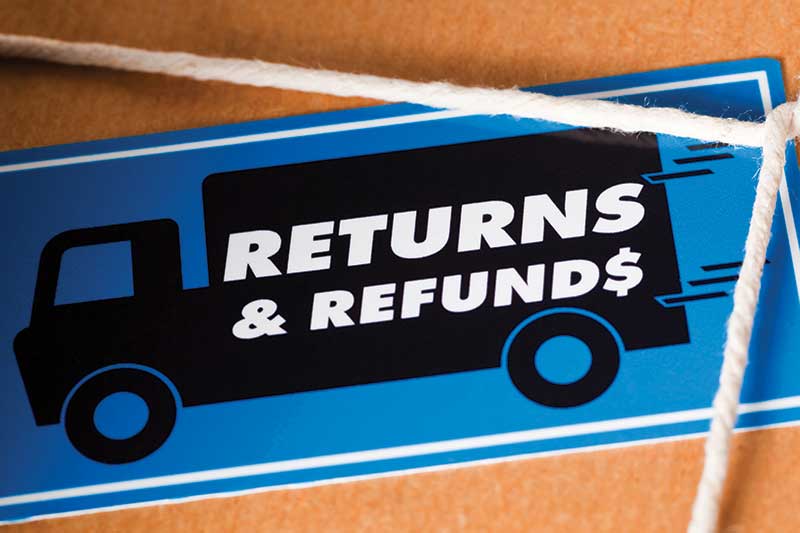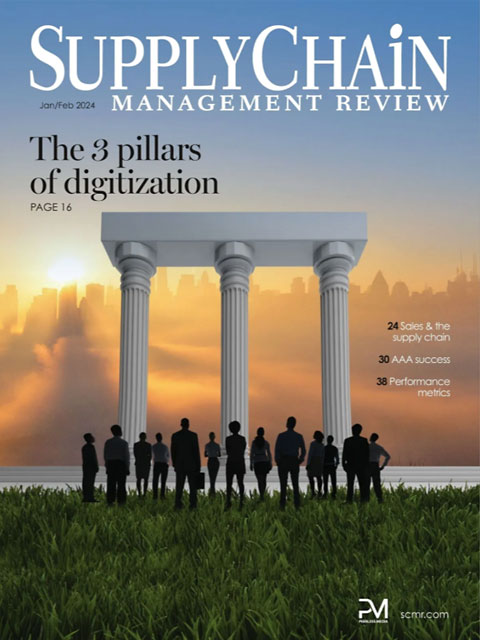Sorry, but your login has failed. Please recheck your login information and resubmit. If your subscription has expired, renew here.
January-February 2024
Back in 2019, we seemed on a consistent path to the future. Then COVID-19 arrived on the global scene, and all predictions went out the window. As 2024 begins, everyone wants to know what the year will look like. I predict continued interest in circular supply chains, cybersecurity, visibility, and digital supply chains, to name a few. But I am not alone. So, I’d like to share five things that I am particularly interested in this year. Browse this issue archive.Need Help? Contact customer service 847-559-7581 More options
In the last few years, tech companies such as PayPal, Affirm and Shopify sold or closed their reverse logistics operations. At the same time, the number of reverse logistics companies (or those companies that touch some part of reverse logistics) continues to explode.
According to data from the Reverse Logistics Association (RLA), there are more than 5,000 companies in its database of companies involved in some way with reverse logistics. Tony Sciarrotta, executive director of the RLA, said the problem with the market is that it is very fragmented. The industry, he said, is more than $860 billion just on the B2C end. The total reverse logistics market is much larger, and according to a research study by Global Market Insights, will surpass $1.6 trillion by 2032.
Estimates on the number of returns for online purchases vary, but roughly 20% is a good estimate. Sciarrotta said B2C was about 17% of sales in 2022, up from just 7% to 8% of sales in 2016. “These numbers reflect returns at retail value back to the retailer or e-tailer. Some inventory goes back onto the shelf. Maybe 50%, but it could be higher,” he tells Supply Chain Management Review.
With such a fragmented market, it is no wonder that firms are being bought and sold. In 2023, UPS acquired Happy Returns from PayPal, indicating that while some companies are looking to divest their reverse logistics operations, others are only too happy to expand theirs. UPS also acquired Optoro, an all-in-one returns platform. Happy Returns offers “returns bars” where customers can bring unboxed items for returns.
Affirm simply closed its Returnly operation last year while Shopify, which purchased Deliverr a few years ago, sold the company to Flexport. Blue Yonder acquired Doddle and even Accenture got into the act, announcing in November it was acquiring OnProcess. The question, then, becomes if reverse logistics is growing so fast—and becoming such a critical part of the customer journey—why is the market so unsettled?

This complete article is available to subscribers only.
Log in now for full access or start your PLUS+ subscription for instant access.
SC
MR
Sorry, but your login has failed. Please recheck your login information and resubmit. If your subscription has expired, renew here.
January-February 2024
Back in 2019, we seemed on a consistent path to the future. Then COVID-19 arrived on the global scene, and all predictions went out the window. As 2024 begins, everyone wants to know what the year will look like. I… Browse this issue archive. Access your online digital edition. Download a PDF file of the January-February 2024 issue.In the last few years, tech companies such as PayPal, Affirm and Shopify sold or closed their reverse logistics operations. At the same time, the number of reverse logistics companies (or those companies that touch some part of reverse logistics) continues to explode.
According to data from the Reverse Logistics Association (RLA), there are more than 5,000 companies in its database of companies involved in some way with reverse logistics. Tony Sciarrotta, executive director of the RLA, said the problem with the market is that it is very fragmented. The industry, he said, is more than $860 billion just on the B2C end. The total reverse logistics market is much larger, and according to a research study by Global Market Insights, will surpass $1.6 trillion by 2032.
Estimates on the number of returns for online purchases vary, but roughly 20% is a good estimate. Sciarrotta said B2C was about 17% of sales in 2022, up from just 7% to 8% of sales in 2016. “These numbers reflect returns at retail value back to the retailer or e-tailer. Some inventory goes back onto the shelf. Maybe 50%, but it could be higher,” he tells Supply Chain Management Review.
With such a fragmented market, it is no wonder that firms are being bought and sold. In 2023, UPS acquired Happy Returns from PayPal, indicating that while some companies are looking to divest their reverse logistics operations, others are only too happy to expand theirs. UPS also acquired Optoro, an all-in-one returns platform. Happy Returns offers “returns bars” where customers can bring unboxed items for returns.
Affirm simply closed its Returnly operation last year while Shopify, which purchased Deliverr a few years ago, sold the company to Flexport. Blue Yonder acquired Doddle and even Accenture got into the act, announcing in November it was acquiring OnProcess. The question, then, becomes if reverse logistics is growing so fast—and becoming such a critical part of the customer journey—why is the market so unsettled?
SC
MR


More 3PL
- Orchestration: The Future of Supply Chain
- February and year-to-date U.S. import volume is solid, reports S&P Global Market Intelligence
- 2024 retail sales forecast calls for growth, says National Retail Federation
- ISM reports another month of services sector growth in February
- February manufacturing output declines, notes ISM
- How to Create Real Retailer-Brand Loyalty
- More 3PL
Latest Podcast

 Explore
Explore
Topics
Procurement & Sourcing News
- Israel, Ukraine aid package to increase pressure on aerospace and defense supply chains
- How CPG brands can deliver on supplier diversity promises
- How S&OP provides the answer to in-demand products
- There is still work to do to achieve supply chain stability
- Blooming success: The vital role of S&OE in nurturing global supply chains
- How one small part held up shipments of thousands of autos
- More Procurement & Sourcing
Latest Procurement & Sourcing Resources

Subscribe

Supply Chain Management Review delivers the best industry content.

Editors’ Picks





